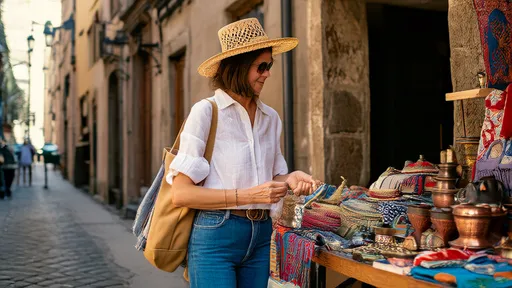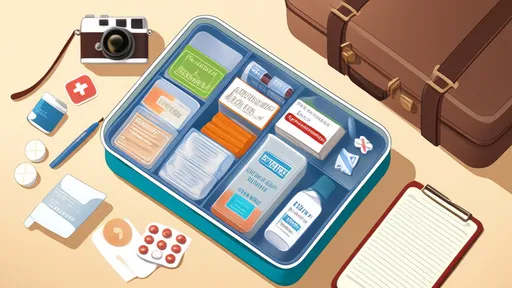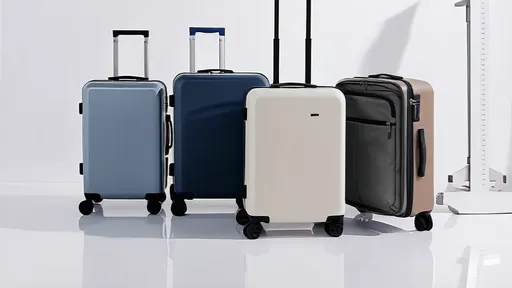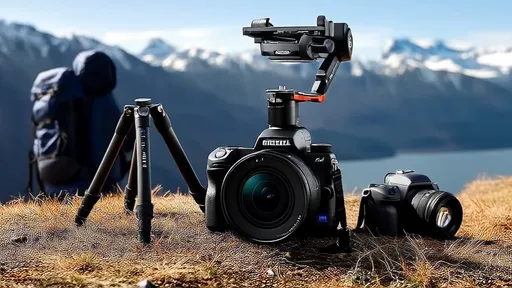Traveling with family is one of life's greatest joys, but it also comes with the responsibility of keeping everyone healthy and safe. A well-stocked travel medical kit is not just a precaution; it's a necessity that can transform a potential vacation disaster into a minor inconvenience. Whether you're exploring a bustling city, relaxing on a beach, or trekking through the mountains, having the right medications and supplies on hand ensures that minor ailments don't derail your adventure. This guide will walk you through the essentials of creating a comprehensive family travel health kit, tailored to protect every member, from the youngest to the oldest.
Before you even begin packing your suitcase, your first step should be to assess the health needs of your entire family. Consider the ages of your children, any chronic conditions anyone might have, and the specific health risks associated with your destination. A toddler's needs are vastly different from a teenager's, and what you pack for a ski trip will differ from a tropical holiday. It's also crucial to schedule a pre-travel consultation with your family doctor. They can provide personalized advice, necessary vaccinations, and prescriptions for standby medications like antibiotics, especially if you're traveling to remote areas or countries with different health standards.
The foundation of any good kit is a selection of remedies for common travel-related illnesses. Motion sickness can strike anyone, often at the most inopportune times during car, plane, or boat rides. Having age-appropriate antihistamines like dimenhydrinate or meclizine can make journeys much more comfortable. Similarly, digestive issues, often dubbed 'traveler's diarrhea', are incredibly common due to changes in diet and water quality. A supply of loperamide for adults and oral rehydration salts for the whole family is essential to manage symptoms and prevent dehydration, a serious risk for young children.
No one plans on getting a headache or a fever on vacation, but these common ailments happen nonetheless. Pack a reliable pain and fever reducer like acetaminophen or ibuprofen in both adult and child formulations, paying careful attention to dosage instructions. For allergy sufferers, an antihistamine can be a lifesaver, combating reactions to unfamiliar plants, foods, or insects. A mild laxative and an anti-nausea medication can also provide relief from discomforts that can arise from changes in routine and diet, ensuring small issues don't become trip-defining problems.
Beyond internal medications, a significant part of your kit should be dedicated to first-aid supplies for handling minor injuries. Cuts, scrapes, and blisters are the most common travel injuries. Your kit should include a variety of adhesive bandages, sterile gauze pads, antiseptic wipes, and medical tape. A pair of tweezers is invaluable for removing splinters or debris from a wound, and a small pair of scissors is useful for cutting tape or bandages. Don't forget an antibiotic ointment to prevent infection in any cuts or scrapes. These supplies allow you to handle minor emergencies on the spot, keeping everyone comfortable and active.
Your family's health isn't just about pills and bandages; it's also about comfort and prevention. Insects can be more than a nuisance; in many regions, they carry diseases like malaria or dengue fever. A strong insect repellent containing DEET, picaridin, or oil of lemon eucalyptus is a must-pack item. Conversely, for soothing the inevitable itchy bites that do get through, calamine lotion or a hydrocortisone cream can provide immediate relief. Likewise, sun protection is non-negotiable. Pack a broad-spectrum sunscreen with a high SPF, lip balm with SPF, and an aloe vera gel to treat any accidental sunburns that occur despite your best efforts.
If any family members have pre-existing conditions like asthma, severe allergies, or diabetes, your travel kit requires extra attention. Ensure you pack more than enough of their regular prescription medications to last the entire trip, plus a few extra days' supply in case of delays. Keep these in their original labeled containers to avoid issues at customs. For severe allergies, always carry at least two epinephrine auto-injectors. It's also wise to have a copy of their prescriptions and a letter from their doctor explaining their condition and the necessity of the medications, which can smooth over any questions from security officials.
Once you've gathered all your supplies, how you pack them is almost as important as what you pack. Use a durable, waterproof, and clearly labeled bag to keep everything together and protected. Organize medications into clear zip-lock bags with labels describing their use and dosage instructions—this is incredibly helpful if someone else, like a partner or grandparent, needs to find something in a hurry. Always split your kit between checked luggage and a carry-on bag. Your carry-on should contain at least a full day's supply of all critical medications in case your checked bags are lost or delayed. This simple step can save you from a major crisis.
A medical kit is useless if you don't know how to use it. Especially when traveling with children, take the time to familiarize yourself with the dosages of children's medications based on weight, not just age. Review basic first-aid procedures for treating minor cuts or burns. It's also prudent to research the healthcare options at your destination before you go. Know the location of the nearest hospital or clinic, and save the local emergency numbers in your phone. For international travel, consider purchasing comprehensive travel health insurance that covers medical evacuation, providing peace of mind that you'll have access to care no matter what happens.
Assembling a thorough family travel medical kit may seem like a daunting task, but it is an investment in your peace of mind. It empowers you to handle the vast majority of minor health issues confidently, allowing your family to focus on creating wonderful memories together. By thoughtfully preparing for common ailments, injuries, and your family's specific needs, you are not just packing a bag of supplies; you are packing the assurance that your holiday will be defined by joy and discovery, not by stress and discomfort. A well-prepared traveler is a happy traveler, ready to embrace the adventures that await.

By /Aug 22, 2025

By /Aug 22, 2025

By /Aug 22, 2025

By /Aug 22, 2025

By /Aug 22, 2025

By /Aug 22, 2025

By /Aug 22, 2025

By /Aug 22, 2025

By /Aug 22, 2025

By /Aug 22, 2025

By /Aug 22, 2025

By /Aug 22, 2025

By /Aug 22, 2025

By /Aug 22, 2025

By /Aug 22, 2025

By /Aug 22, 2025

By /Aug 22, 2025

By /Aug 22, 2025

By /Aug 22, 2025

By /Aug 22, 2025